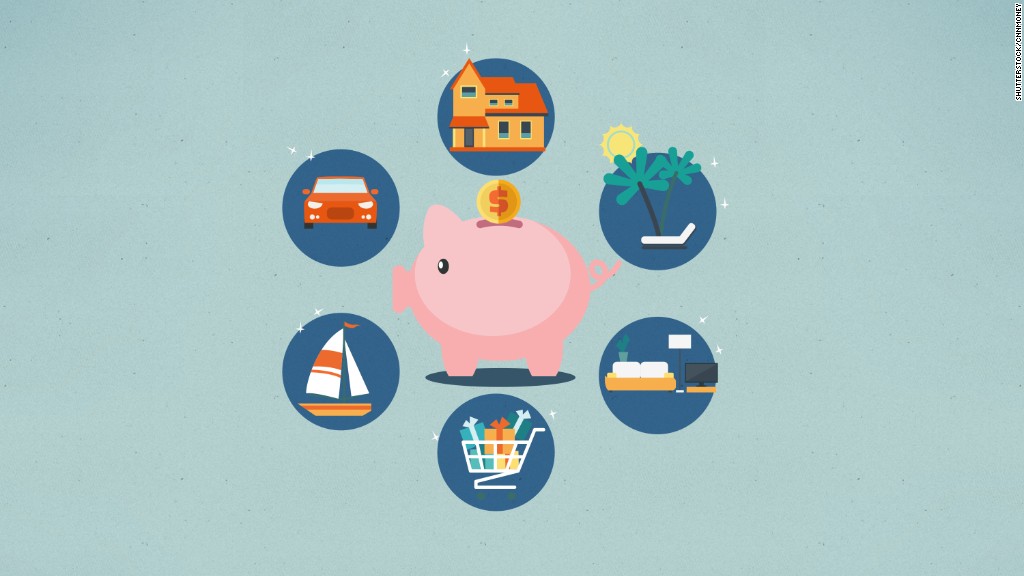
The start of a new year is a good time to update your budget -- or create one in the first place. But as you review your budget and, hopefully, adjust it for your raise, here are a few more changes you should really think about making.
1. Carve out room for savings
Your budget should include a line item for each spending category you encounter, from housing to cable to healthcare. But many people forget to incorporate one key line item: savings. If your budget doesn't have any wiggle room for savings, then it's time to reallocate your income so that savings come first. Ideally, you should aim to put away 10% or more of each paycheck, but if that's not feasible right now, then start slowly and work your way up.
No matter your age or income, you need an emergency fund with enough money to cover three to six months of living expenses. If you've yet to hit this target, any money you save should go directly toward an emergency account. Once you have enough short-term savings, shift your focus to long-term goals, like retirement or the house you're hoping to buy.
2. Factor in one-time expenses
Many of us have bills that creep up just once a year, like that annual heating maintenance fee or warehouse club renewal. If your budget doesn't already allow for these, look at your records from the past few years and identify the different one-off expenses you encountered. Then add those numbers up, divide the total by 12, and factor that amount into your budget each month.
Let's say you spent $100 last year on a gutter cleaning in January, $400 in April on your annual lawn treatment, and another $100 in June to renew your warehouse club membership. In that case, you'll need to add a $50 line item each month to cover these sporadic expenses. If you pay your homeowners' or renters' insurance all at once, that's another cost to allocate over the course of 12 months.
3. Eat out less often
According to the Bureau of Labor Statistics, the average American household spends $3,008 a year, or $250 a month, on restaurants and takeout. But because most food establishments charge a 300% markup on what they serve, spending that much each year means throwing away a good $2,000 all-in. If you were to cut that spending in half, you'd have an extra $1,000 a year to save, invest, or use to pay down debt.
4. Unload your vehicle
Owning your own vehicle can be a nice convenience, and in some places, it's truly a must. But if you live in or near a city with ample public transportation, you might consider getting rid of that automobile, relying more on buses, trains, or a bicycle, and pocketing the savings. AAA estimates that it costs $8,700 a year, or $725 a month, to own a vehicle. On the other hand, according to LendingTree, the most expensive public-transportation commute in the nation -- in our capital of Washington, D.C. -- costs $237 a month. Compared to $725, that's a $488 monthly savings.
Even if you were to take an Uber back and forth to work every day in New York City, you'd spend just $705 a month on average, which might still be slightly cheaper than owning a vehicle. Plus, you wouldn't have to assume the risk of major breakdowns or worry about parking.
5. Stop banking on that bonus or tax refund
Maybe you've gotten a bonus or tax refund over the past few years -- perhaps even consistently. But if you're including that money in your budget, then you're making a big mistake. Bonuses in particular are by no means guaranteed, and if your company has a bad year or you don't meet certain goals, you might not see that extra income this time around.
Tax refunds can be tricky, too. First of all, in an ideal world, you shouldn't be getting a significant refund in the first place, because that's just loaning the government money for free. But even if you've snagged a sizable refund over the past few years, it can be tough to figure out where it came from unless you're really in tune with your finances. It could be, for example, that you were eligible for certain tax credits or deductions in the past that no longer apply. That's why banking on a bonus or tax refund can really hurt you. If you count on money that never comes your way, you'll risk overspending and taking on debt.
Sponsored Content from The Motley Fool:
• 5 Years From Now, You'll Probably Wish You Grabbed These Stocks
• Kansas Man Turns $10,000 into $8 Million
• Shark Tank Just Revealed a Trillion-Dollar Idea
The more precise and strategic you are with your budget, the better your chances of saving money and staying on top of your finances. A few smart budget changes could really help you pocket more cash and bring you closer to achieving your financial goals.
